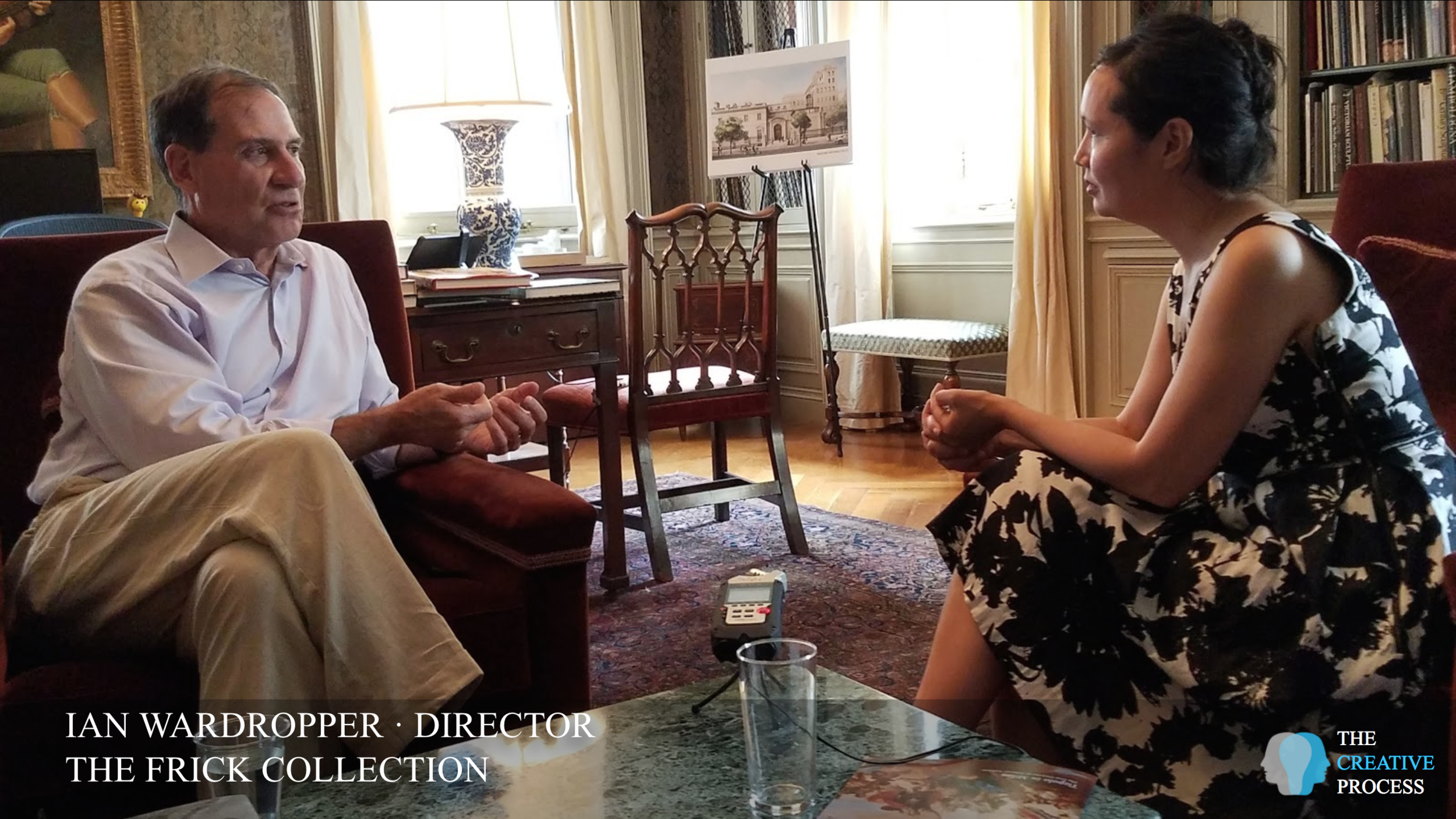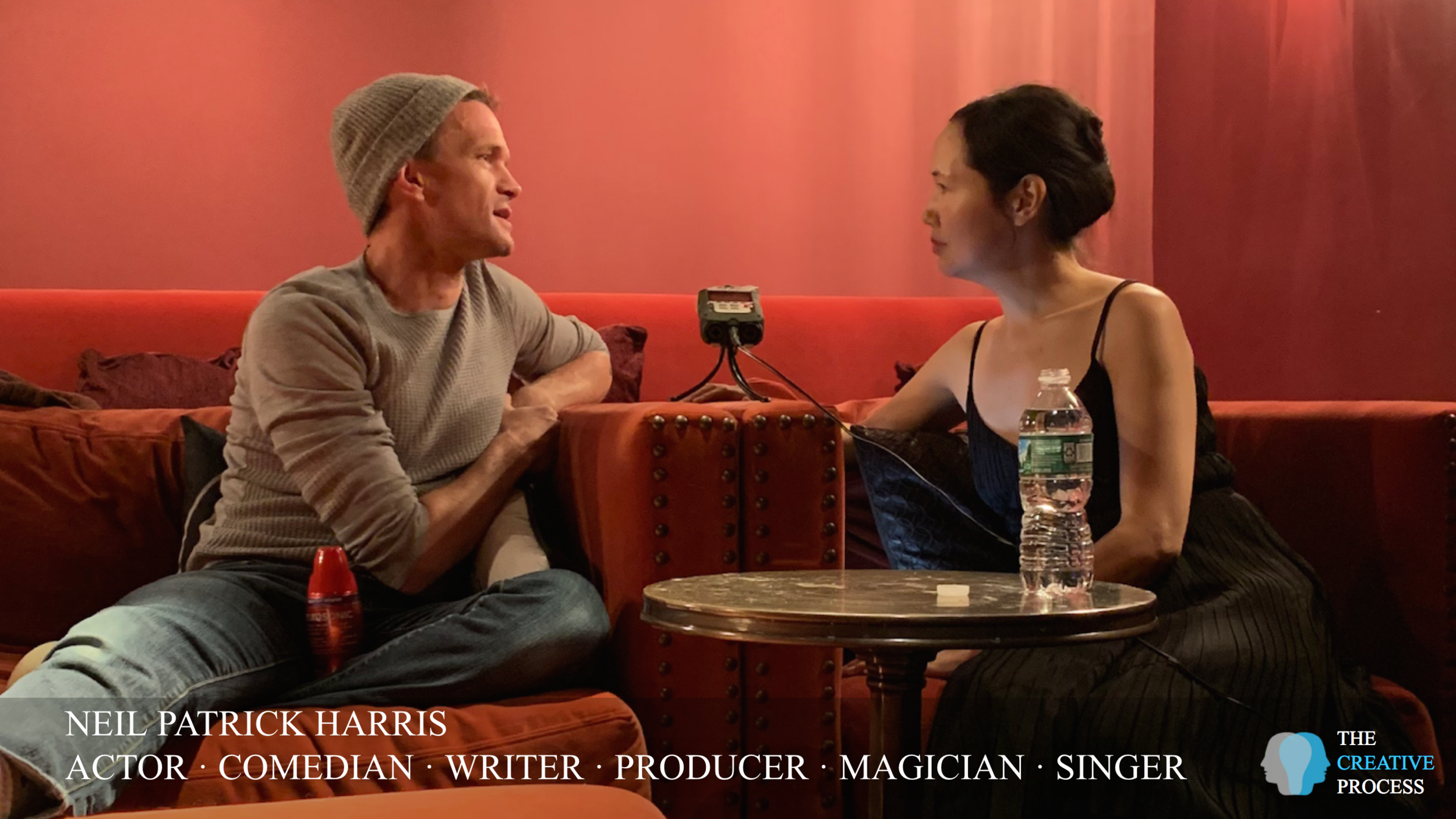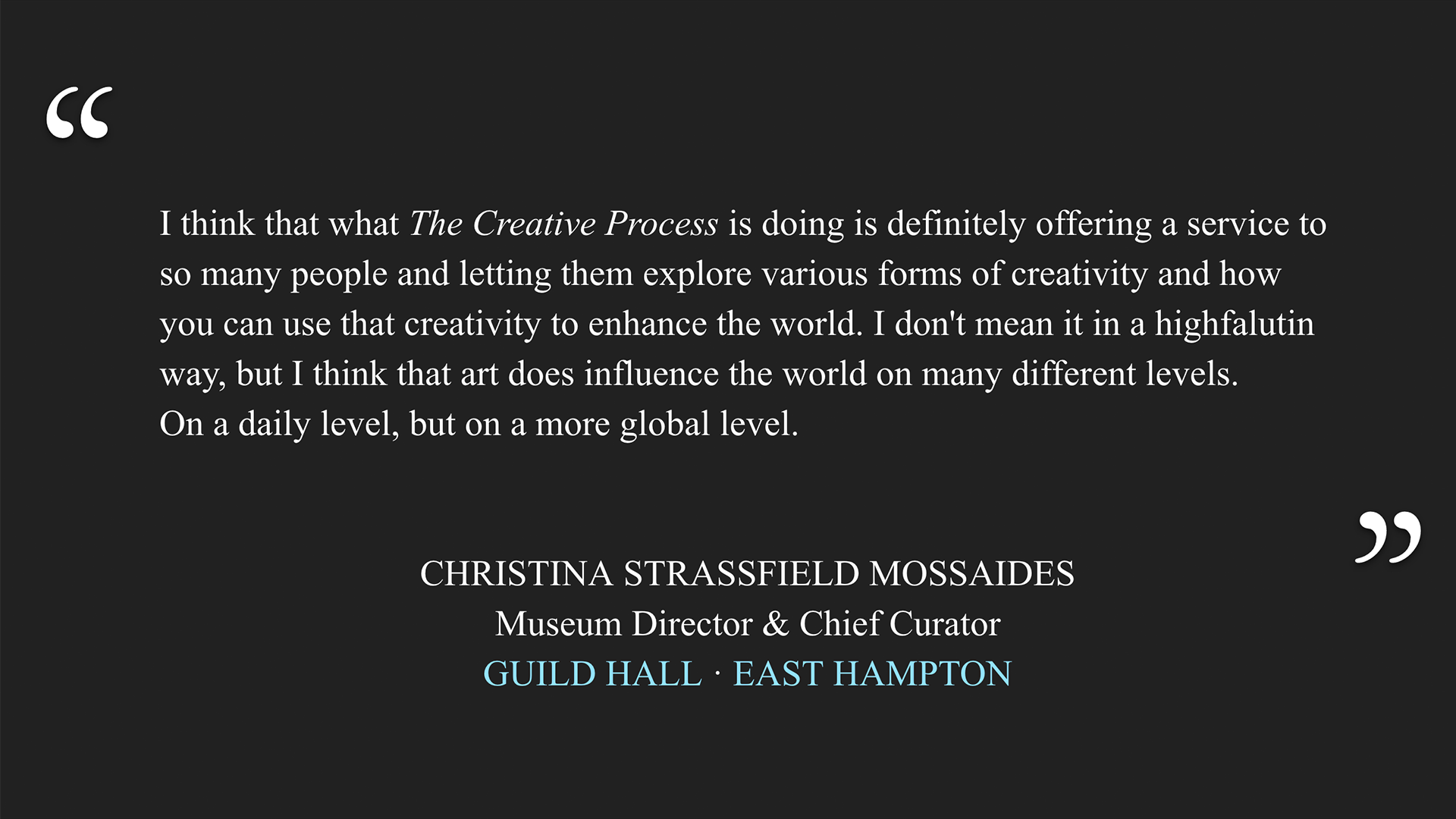Dorothea Rockburne was born in 1932 in Montreal. She attended Black Mountain College where she met the mathematician Max Dehn, whose tutelage in concepts including harmonic intervals, topology, and set theory were deeply influential to her art practice. After moving to New York City in 1954, she became involved with Judson Dance Theater, and later participated in Carolee Schneemann’s Meat Joy and other performances. In the late 60s, Rockburne began exhibiting paintings made with industrial materials and creating drawings from crude oil and graphite applied to paper and chipboard. Her “visual equations” based on set theory were first exhibited in New York in 1970. Her later paintings draw on ancient systems of proportion and astronomical phenomena. She’s had solo exhibitions at the Museum of Modern Art in New York, Dia:Beacon, and a major retrospective at the Parrish Art Museum.
THE CREATIVE PROCESS
It's interesting. Of course, he gave you these books, but it's interesting how those walks you took together with the mathematician Max Dehn also illustrated what he was teaching you about abstraction.
DOROTHEA ROCKBURNE
The walks were amazing. We walked up every morning at eight o'clock. There's a waterfall on campus at Black Mountain, and we walked to this waterfall, and he explained water to me. He explained how things worked. You know, when I was a little kid, I used to take alarm clocks apart and put back together and things like that. I don't know. Ever since the chip entered the universe, I don't know electronics now.
But when I was a kid, when I was even living in New York on Chambers Street with my daughter, we had a TV set which broke down periodically, and I would take out all the tubes, test them at the local store. I just was interested in how things tick. Always. In nature and in mechanics and so on. So, math just kind of was a natural for me the way Max taught it because what he was really teaching was astronomy.
THE CREATIVE PROCESS
And you can see that sense of wonder everywhere in your early artworks to the ones that you just shared with us today with the beautiful copper over paper and all these textures. They're just a wonderful meditation. I think the expression you used was on the nature of nature.
ROCKBURNE
Yes. There's something about this life I have, and I've had since I was a child, about studying the creativity of the arcane. I studied Egypt since I was six. That's where I go every day.
THE CREATIVE PROCESS
You were talking about time and your experience of time. And you said you don't experience it as...it's not linear. I don't know. How would you say?
ROCKBURNE
It's hard for me, for myself, to define what the past is. So when I was doing the work at DIA, I felt like I had found about this work and formed it yesterday. Then, as I said, I have extensive diary notes on it. So, it was easy to go back to '80. I have 73 diaries. And look at it and then share it with all the people that were working with me at DIA.
Of course, you know, like they have only seen this in reproduction. They don't know what the work behind the work was like. And so, once we were talking about, and we had to track it. The big reason it took three years is that none of the materials exist. We had to substitute and test new materials to substitute for the old materials. Nothing. You know, it's like Rauschenberg once lost one of the Coke bottles of his work, and he finally found one in a mountain in India or something like that.
It's that kind of thing. The stuff that was so ordinary. Paper that was so ordinary. We had a special paper made in it. So that's what really took the time. But in terms of the sequential time, I experience very little difference between yesterday and today in my work.
This interview was conducted by Mia Funk & Benjamin Appel with the participation of collaborating universities and students. Associate Interviews Producer on this podcast was Elena Sperry-Fromm. Digital Media Coordinator is Yu Young Lee. “Winter Time” was composed by Nikolas Anadolis* and performed by the Athenian Trio.
Mia Funk is an artist, interviewer and founder of The Creative Process.






























































































